Edmund Nickless has lunch with Ted Nield and muses on changes since his appointment, the Glorious Revolution of 1997, and the future…
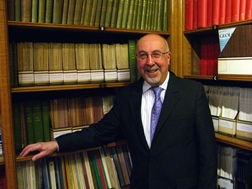
We sat in Edmund’s regular corner at the King’s Head, and ordered fish and chips. The waitress retreated, with her instructions. Edmund’s fish was to come with garden peas, should not be overcooked and should arrive ‘with a golden finish’ – not cremated and borderline inedible (like last time). Edmund is - particular. He likes it the way he likes it. With a golden finish. Cheese to follow. And no mushy peas, mashed potato or egg, thank you very much.
Like the waiting staff at the King’s Head, we have got used to Edmund, who has managed and represented the Society – for some, even
embodied it, which disquiets him a little – for the last 18 years. In that time, the Fellowship has almost doubled and the Society and Burlington House have been transformed.
It all began in 1997. “As I recall, there was an advertisement in Geoscientist. Robin Cocks, then Vice-President, was overseeing the process. So, having known him for some time, I rang and asked if there was any point applying. He encouraged me. I wrote an application letter with CV; there was a shortlisting process and four of us were asked to talk to Council (at one of its regular meetings). I was also interviewed by senior staff.”
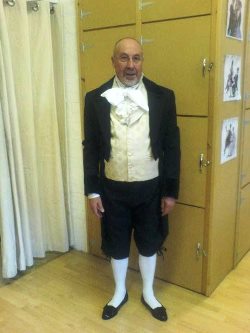 That was an occasion I also recall, as it was where Edmund and I met (though as with the other candidates, all CGeols, not for the first time). “Mike Collins, then Director of Publishing, had been asked to report back. I think this was interesting because the staff were fully engaged in the selection process.” Mike took back our unanimous recommendation (yes, it was Edmund!).
That was an occasion I also recall, as it was where Edmund and I met (though as with the other candidates, all CGeols, not for the first time). “Mike Collins, then Director of Publishing, had been asked to report back. I think this was interesting because the staff were fully engaged in the selection process.” Mike took back our unanimous recommendation (yes, it was Edmund!).
Staff did value their involvement – which was a far cry from the way his would-be successors were smuggled in and out of the building to interview with a small ‘appointment committee’. (Our swanky recruitment consultants forgot, however, to put blankets over the candidates’ heads. The security monitors, and the Council Room’s paper-thin walls, defeated this risible secretiveness.)
Odd
“I found many odd things. A ‘Fellows’ Bedroom’ in the basement, where those staying overnight were disturbed by early morning deliveries. That we had two resident housekeepers, who didn’t relish these uninvited guests. That Norma Barton provided daily tea for staff in the Lower Library, and coffee in the afternoon, and washed up the cups. That the limit on how many meetings we could hold was her capacity to make enough sandwiches.
“And a noticeboard - allegedly showing the remorseless growth of the fellowship across the ages. It was not very accurate, I discovered, because we never recorded any strikings off - the Society consistently overstated its membership. There were also ‘Associated Fellows’, who paid a reduced ‘introductory’ fee, on the understanding that they would convert to full Fellowship later - which of course they never did, and went on getting all the benefits at the lower price!
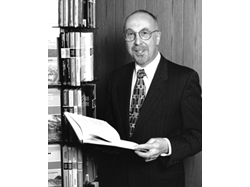 “The dispensing machine for miniatures, at 2/6d a pop, which had once graced the Fellows’ Room and which you discovered under the stairs … was a token, I feel, of the Society’s being then rather like an exclusive gentlemen’s club - not very welcoming or open, superior; still preserving the mystique of the Dining Club - where everyone suspected that everything was done! (And it did have some power. I remember a note, from Perce Allen to Kingsley Dunham: ‘We had a word at the Club - I may have just the chap for you…’.)
“The dispensing machine for miniatures, at 2/6d a pop, which had once graced the Fellows’ Room and which you discovered under the stairs … was a token, I feel, of the Society’s being then rather like an exclusive gentlemen’s club - not very welcoming or open, superior; still preserving the mystique of the Dining Club - where everyone suspected that everything was done! (And it did have some power. I remember a note, from Perce Allen to Kingsley Dunham: ‘We had a word at the Club - I may have just the chap for you…’.)
Networking
“In times past, students were influenced by their teachers. They were basically told to join and, fearing it might do them little good to refuse, they did! Now, people join if they think the Society delivers something they want - basically, networking. It’s ‘making geologists acquainted with one another’.
“Another thing that has changed is the balance between academic and industrial. Academics now make up less than a quarter of the Fellowship, but were dominant in the past. This goes hand-in-hand with the move towards professional validation. The title has meaning in the professional world, and it has brought us new members who, before, might not have remained.
 “This is valuable; in terms of impressing government, it’s not so much our ‘elite’ quality that matters but the fact that all sectors are represented; being able to draw on a wide group, industrial and academic, from a diverse set of backgrounds and perspectives, able to input to policy development. Increasing diversity has worked in our favour because it gives us legitimacy.
“This is valuable; in terms of impressing government, it’s not so much our ‘elite’ quality that matters but the fact that all sectors are represented; being able to draw on a wide group, industrial and academic, from a diverse set of backgrounds and perspectives, able to input to policy development. Increasing diversity has worked in our favour because it gives us legitimacy.
“Another debate going on in 1997 was the role of staff vis-à-vis Council. The concern was that if you employed staff who were competent in their professions, with experience and authority, this would be a ‘challenge’ to Council. But I saw that in the same light as the relationship of civil servants to ministers. Council oversees and directs; staff advise and execute. Many were still thinking in outmoded ways.
Occupancy
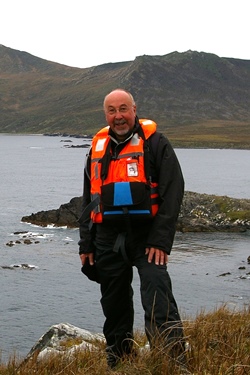
“Uncertainty about our tenancy [of Burlington House] had led to ‘planning blight’. For years we had spent no money on the building, which was in a pretty pitiful state. But after 2005, with security of tenure established for up to 80 years, we were able to go ahead with restoring the interior to its current splendour, in time for the Bicentenary in 2007. We celebrated in style, redressing the lack of activity of previous years and attracting sponsorship – not least, so that we could digitise almost everything that the Society has ever published and make it available online.
“We thought then that the lease was settled; but there remained the little matter of rent ‘reviews’. Looking ahead, the formula for recalculating rent (based on property and rental values in the area) could now land the Courtyard societies with large increases. The rent we pay currently is extremely modest. But the escalation of property and rental values in Mayfair … suggests that it could quickly become unaffordable. This problem is not likely to be resolved soon.
“Although the spirit of the agreement was that rent should remain ‘affordable’, this was not written into the agreement; and rather like the minutes of a meeting, what is written matters more than what was said.
“So the lease is currently ‘held over’, and while we remain in arbitration, everything is stuck. All we can do is assume the worst and begin to think once again about the cost of staying in Burlington House, and what we should do if this should prove to be ‘too much’. We go back to the question: ‘How important to the Society is being in Burlington House?’. Over the next decade there will need to be a serious debate about our attachment to bricks and mortar, to distinguish that, where necessary, from what is essential to doing what we do.
Roses
“Someone said something to me recently which I found deeply depressing, and that was: ‘I suppose you (meaning the Society) will now retreat, and become inward-looking again’ – as though all the international and multilateral activity during my tenure were a ‘blip’. They assumed – feared - that this was just ‘my’ way, and that somehow the ‘default’ position would now resume.
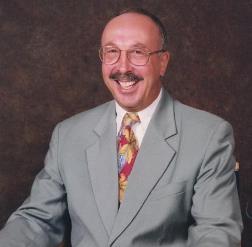 “But of course it isn’t like that at all. I am only a player, who has tried to make things happen. The future doesn’t depend on me, and it will be different. But I am sure we shall not retreat.
“But of course it isn’t like that at all. I am only a player, who has tried to make things happen. The future doesn’t depend on me, and it will be different. But I am sure we shall not retreat.
“And now it’s time to hand it back. I have enjoyed doing it. The roses may be calling, but I still have a few things to do first!”